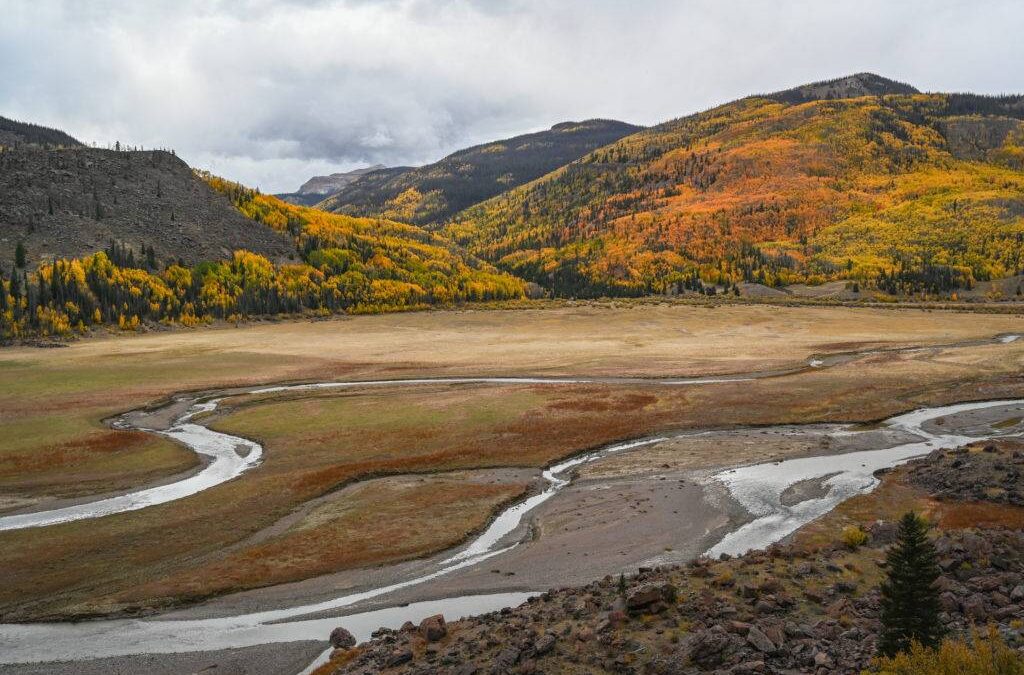Cover Photo by Mathew Morelli
By Callie Smith
Now that we are deeper into our winter season we find ourselves day dreaming about the glorious fall season along the CDT. Check below for some fall foliage photos, aspen facts, and future leaf peeping suggestions that will be sure to brighten your wintery day!
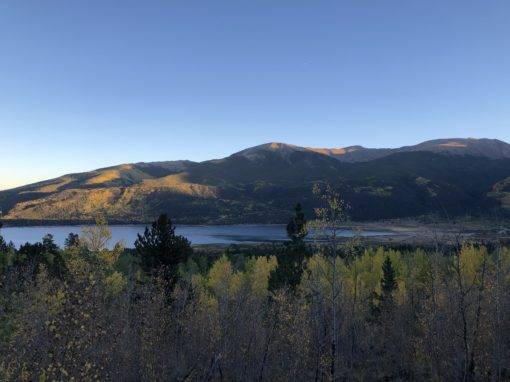
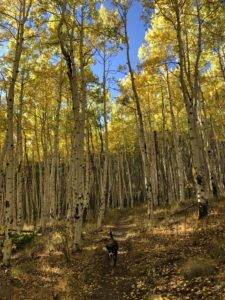
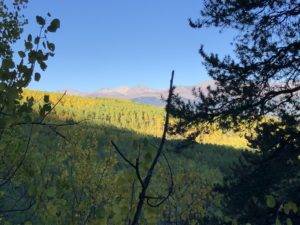
Photos from Leadville and Twin Lakes, Colorado, Núu-agha-tʉvʉ-pʉ̱ (Ute) lands. Photos by Hannah Guilford, a CDT Gateway Community Ambassador
Some of our absolute favorite fall colors come from aspen trees! Aspens, which can be seen in many of our fall foliage photos, are medium sized deciduous trees that are characterized by their powdery white bark and thin rounded leaves. In the Western United States, aspens are generally found between 5,000 and 12,000 feet in elevation and are one of the most widespread native tree species in North America. While there are pockets of aspens almost everywhere along the CDT, they are the most populous throughout Colorado, northern Wyoming, and Montana.
A fantastic fun fact about aspens is that the singular aspen trees we see are actually a part of a larger organism. Aspens commonly regenerate through a process known as “sprouting” where new aspen shoots arise from existing long lateral roots. This results in many genetically identical aspens accumulated together in what is known as a “clone”. The Pando Clone, located in southern Utah, is the largest and oldest known aspen clone. The Pando Clone (also known as the “Trembling Giant”) is over 100 acres in size and weighs more than 14 million pounds. Some even suggest that Pando is the oldest and heaviest living organism on earth.
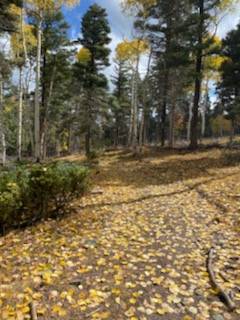
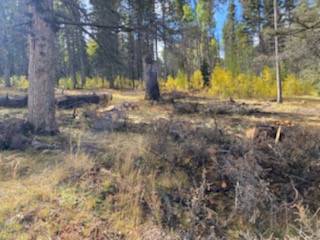
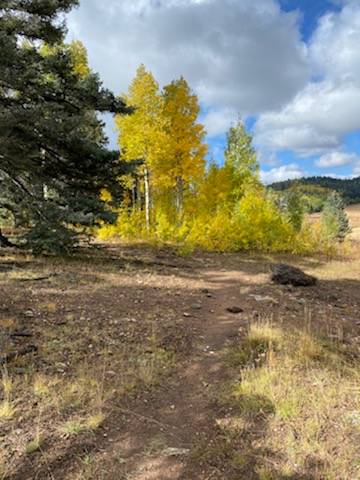
Photos from Hopewell Lake, New Mexico, Núu-agha-tʉvʉ-pʉ̱ (Ute) and Pueblos lands.
Photos by Mary Stuever, a CDT Gateway Community Ambassador
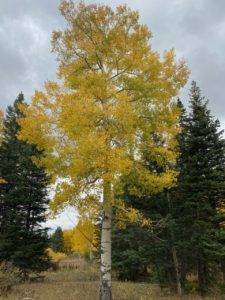
Photo from Canjilon Mountain, New Mexico, Núu-agha-tʉvʉ-pʉ̱ (Ute) and Pueblos lands.
Photo by Mary Stuever, a CDT Gateway Community Ambassador
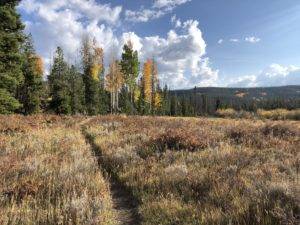
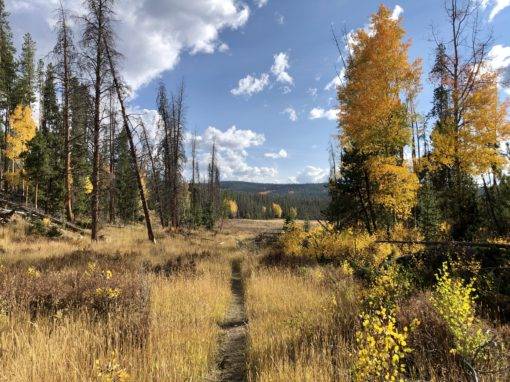
Photos from the CDT Gateway Community of Grand Lake, Colorado. Núu-agha-tʉvʉ-pʉ̱ (Ute) and Cheyenne lands.
Photos by Katie Hearsum, a CDT Gateway Community Ambassador.
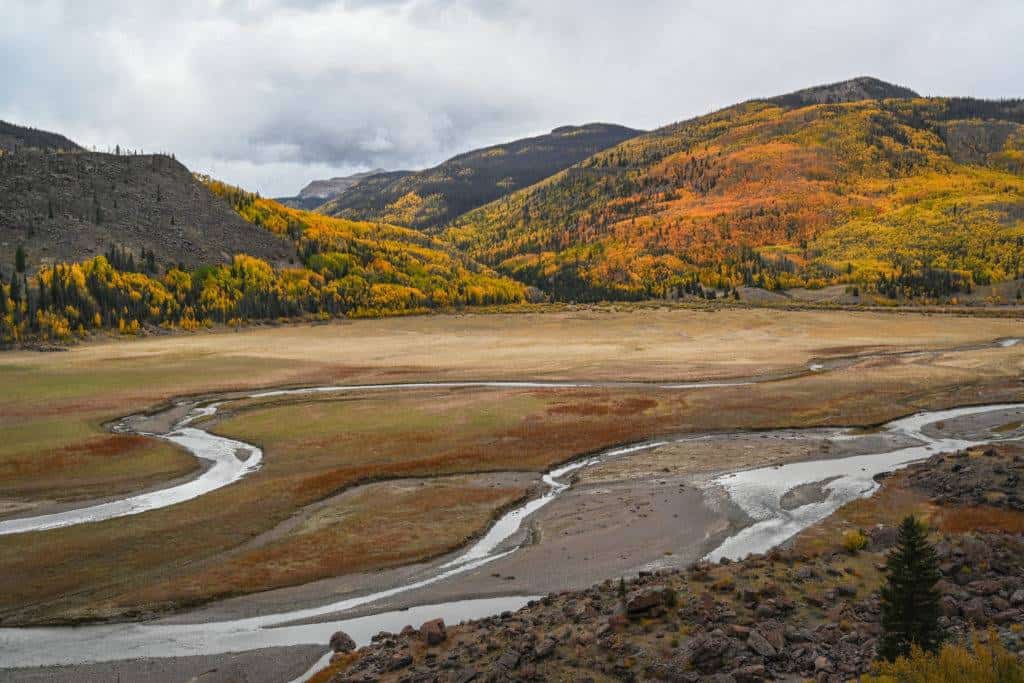
Photo from the San Juan Mountains, Colorado, Núu-agha-tʉvʉ-pʉ̱ (Ute) and Pueblos lands.
Photo By Matt Moreli
Feeling inspired to plan a CDT leaf peeping trip in 2022? Check out our suggestions below for some fabulous fall adventures.
NEW MEXICO:
Where to go:
US 64 Taos to Chama: Take US 64 from Taos to the CDT Gateway Community of Chama (or vice versa) to travel across the incredible Chama National Forest through Tres Padres and Tierra Amarilla.
When to go: Early to mid October is the best time for the higher elevations and late October is better for the lower elevations in New Mexico
COLORADO:
Where to go:
Buffalo Pass: This dirt road near the CDT Gateway Community of Steamboat Springs, Colorado, is a wonderful place to view aspen groves and Routt National Forest
Independence Pass: Located near the CDT Gateway Community of Leadville-Twin Lakes, Colorado, Independence will take you from Twin Lakes to Aspen and is ok for 2WD cars.
When to go: It depends on the elevation of the place you would like to visit but peak leaf viewing in the mountains is generally from mid September to early Octobe
WYOMING:
Where to go:
Beartooth Scenic Byway: Travel across the Shoshone National Forest and Yellowstone National Park on Wyoming’s highest paved road. You can access this road from Wyoming through the Chief Joseph Scenic Byway.
When to go: September through mid to late October
MONTANA:
Where to go:
Bitterroot Valley:Bitterroot valley sits just east of the CDT and south of Missoula. This valley is surrounded by the beautiful bitterroot mountains making it a prime fall spot.
When to go: Mid September to early October.
Callie Smith is the Community Engagement Coordinator at the CDTC. In her free time she enjoys whitewater rafting and cooking.

